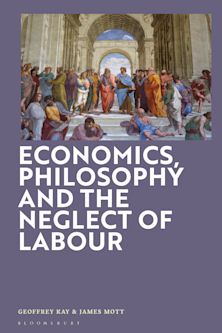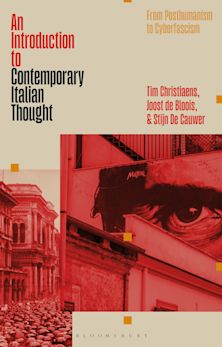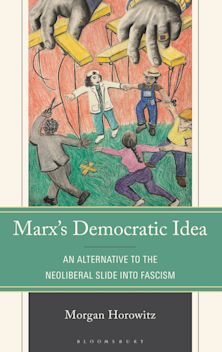- Home
- ACADEMIC
- Philosophy
- Social and Political Philosophy
- Creolizing Practices of Freedom
Creolizing Practices of Freedom
Recognition and Dissonance
Creolizing Practices of Freedom
Recognition and Dissonance
This product is usually dispatched within 3 days
- Delivery and returns info
-
Free US delivery on orders $35 or over
You must sign in to add this item to your wishlist. Please sign in or create an account
Description
Creolizing Practices of Freedom argues that many of our long-standing debates over the concept of freedom have been bound up in the politics of purity-explicitly or implicitly insisting on clear and distinct boundaries between self and other or between choice and coercion. In this model, freedom becomes a matter of purifying the self at the individual level and the body politic at the larger social level. The appropriate response to this is a creolizing theory of freedom, an approach that sees indeterminacy and ambiguity not as tragic flaws, but as crucial productive elements of the practice of freedom.
Product details
| Published | Mar 25 2024 |
|---|---|
| Format | Paperback |
| Edition | 1st |
| Extent | 206 |
| ISBN | 9781538174630 |
| Imprint | Rowman & Littlefield Publishers |
| Dimensions | 9 x 6 inches |
| Series | Creolizing the Canon |
| Publisher | Bloomsbury Publishing |
About the contributors
Reviews
-
Creolizing Practices of Freedom is an excellent book! It develops carefully nuanced and complex arguments, engages with various important figures, and advances an argument that anyone who works within political theory ought to be attentive to.
Radical Philosophy Review
-
Monahan's engagement with sonic metaphors produce a mellifluous reading experience by engaging authors' disparate harmonies and melodies, but not in a way that standardizes the sounds of the texts.
Sartre Studies International
-
In this groundbreaking, indispensable, sonorous theoretico-praxical account of creolizing freedom, Monahan calls for we-subjects dynamically perceiving the dissonances and resonances of living-with difference. Through his own practices of initiating and listening to shared conversations between Anzaldúa, Biko, Hegel, Fanon, Gordon and Wynter, Monahan teaches us the freedom to be at home with others.
Mariana Ortega, Penn State University
-
Creolizing Practices of Freedom is a tour de force. Tackling one of the most important subjects that haunts political philosophy, freedom, Monahan critiques the project of recognition in a highly original manner, by introducing us to the centrality of sounds of dissonance and resonance as crucial to a praxis of liberation. Emphasis is no longer exhausted by how we see each other in or by images of collective praxis. The introduction of dissonance and resonance instead asks whether and how we hear each other so we can live together in struggles that redefine who human beings can become as we seek liberation and freedom with one another. In a crucial expansion of the very notion of the imagination in revolutionary theory, this is a must read for anyone who seriously grapples with freedom.
Drucilla Cornell, Rutgers University, author of Today's Struggles, Tomorrow's Revolutions
-
This important new book argues that the founding political concepts of Western societies assume a purity of identity and culture that has never really existed in the modern world. Monahan helps us reimagine a concept of freedom without the telos of purity, where intermingling with others is not seen as a threat to autonomy. I hope this book will be widely read.
Linda Martín Alcoff, Hunter College, CUNY
-
In this cogently argued text, Monahan gives us a brilliant and contemporary examination of the concept of freedom without using notions of substance, firm foundations, fixed points of stasis, encompassing wholes, final points of arrival, imperial centers and colonial locations. The result is a fluid and original reading of the movement 'creolizing' as an approach to freedom in our postmodern era.
Paget Henry, professor of Africana studies and sociology, Brown University

ONLINE RESOURCES
Bloomsbury Collections
This book is available on Bloomsbury Collections where your library has access.



































